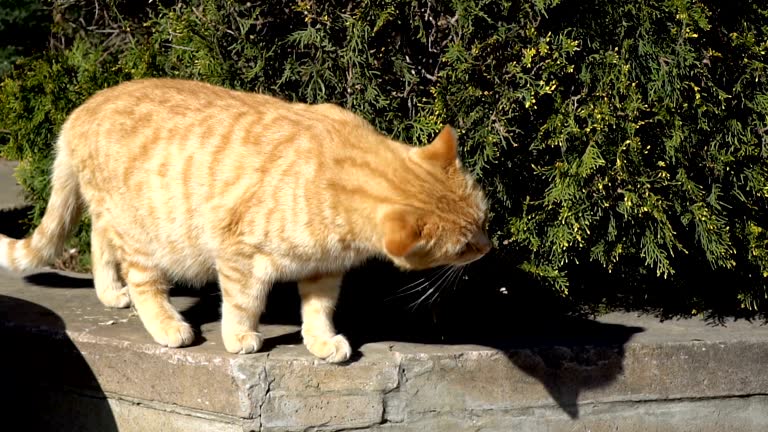Cats communicate through body language, and when unusual behaviors like head shaking occur, it often signals an underlying issue. Many cat owners wonder, “Why is my cat head shaking?” While occasional shaking may be harmless, persistent or excessive head shaking can indicate medical concerns. Understanding the causes, symptoms, and solutions helps keep your feline companion healthy and comfortable.
Common Causes of Cat Head Shaking
Ear Infections
Ear infections are a primary reason for head shaking in cats. Bacterial, fungal, or yeast infections can cause irritation, making cats shake their heads to relieve discomfort.
- Symptoms include redness, swelling, foul odor, and excessive ear scratching.
- Treatment typically involves prescription ear drops or antibiotics from a veterinarian.
- Regular ear cleaning helps prevent infections.
Ear Mites
Ear mites are tiny parasites that infest a cat’s ears, leading to itching and head shaking.
- Affected cats often scratch their ears excessively and shake their heads frequently.
- A dark, crumbly discharge resembling coffee grounds is a common sign of ear mites.
- Veterinary treatments include medicated ear drops or topical applications.
- Cleaning bedding and surroundings prevents reinfestation.
Foreign Objects in the Ear
Cats are curious creatures, and small objects like dirt, plant material, or debris can get lodged in their ears.
- Sudden head shaking, pawing at the ears, and discomfort are key signs.
- A veterinarian can safely remove the object to prevent further irritation.
- Keeping your cat indoors minimizes exposure to foreign debris.
Allergies
Allergies to food, pollen, dust, or chemicals can trigger head shaking in cats.
- Itching, sneezing, watery eyes, and skin irritation may accompany head shaking.
- Identifying and eliminating allergens from the cat’s environment reduces symptoms.
- A veterinarian may prescribe antihistamines or special diets for allergy management.
Polyps or Tumors
Growths in the ear canal or nasal passages can cause discomfort, leading to head shaking.
- Symptoms may include persistent ear infections, nasal discharge, and difficulty breathing.
- A veterinary examination, often including imaging or biopsy, is necessary for diagnosis.
- Treatment may involve surgical removal of the growths.
Neurological Disorders
Certain neurological conditions can cause involuntary head shaking or tremors.
- Conditions like cerebellar hypoplasia or vestibular disease may affect balance and coordination.
- Other symptoms include dizziness, difficulty walking, or unusual head tilting.
- A veterinary consultation is crucial for proper diagnosis and treatment.
Fungal and Bacterial Infections
Fungal and bacterial infections in a cat’s ears or skin can lead to head shaking.
- Symptoms include redness, scabbing, and foul-smelling discharge.
- A veterinarian can determine the infection type and provide appropriate medication.
- Keeping ears dry and clean reduces infection risks.
Pain or Discomfort
Dental issues, injuries, or underlying pain can cause cats to shake their heads as a reaction to discomfort.
- Cats with dental disease may drool excessively or avoid eating.
- Checking for injuries or swelling around the head can help identify pain sources.
- Veterinary care is necessary for treating pain-related conditions.
How to Help a Cat That Shakes Its Head
Check for Visible Issues
Before seeking veterinary care, check your cat’s ears and head for visible signs of redness, swelling, discharge, or foreign objects.
Maintain Proper Ear Hygiene
Regular ear cleaning helps prevent infections and mites.
- Use a vet-approved ear cleaner and a soft cotton pad.
- Avoid inserting cotton swabs into the ear canal.
- Clean ears once a week for maintenance.
Eliminate Potential Allergens
If allergies are suspected, eliminate potential triggers from the cat’s environment.
- Use hypoallergenic cat food if food allergies are a concern.
- Keep the home free of dust, pollen, and harsh cleaning chemicals.
- Regularly wash bedding and toys.
Schedule a Veterinary Visit
If head shaking persists, professional veterinary care is essential.
- A vet can diagnose infections, parasites, allergies, or other medical conditions.
- Early treatment prevents complications and provides relief.
Conclusion
Head shaking in cats can result from minor irritations or serious medical conditions. Understanding why a cat is shaking its head helps owners take appropriate action. Common causes include ear infections, mites, allergies, or neurological disorders. Regular ear cleaning, allergy management, and prompt veterinary care ensure a happy and healthy cat. If head shaking persists or worsens, a veterinarian should be consulted for a thorough evaluation and treatment plan.
FAQs
How can I tell if my cat has an ear infection?
Symptoms include excessive head shaking, scratching, redness, swelling, and foul-smelling discharge.
Are ear mites contagious to other pets?
Yes, ear mites spread easily between cats and other pets. Treat all animals in the household if one is infected.
Can allergies cause head shaking in cats?
Yes, environmental and food allergies can lead to itching, irritation, and head shaking.
When should I take my cat to the vet for head shaking?
If head shaking is persistent, accompanied by discharge, swelling, or signs of pain, a veterinary visit is necessary.
How can I prevent my cat from getting ear mites?
Regular ear cleaning, keeping the home clean, and using vet-recommended preventive treatments help prevent ear mite infestations.

1 thought on “Why Is My Cat Head Shaking? Causes, Symptoms, and Solutions”